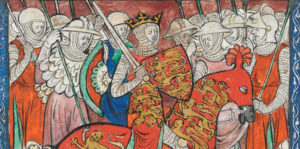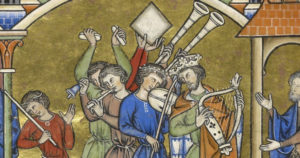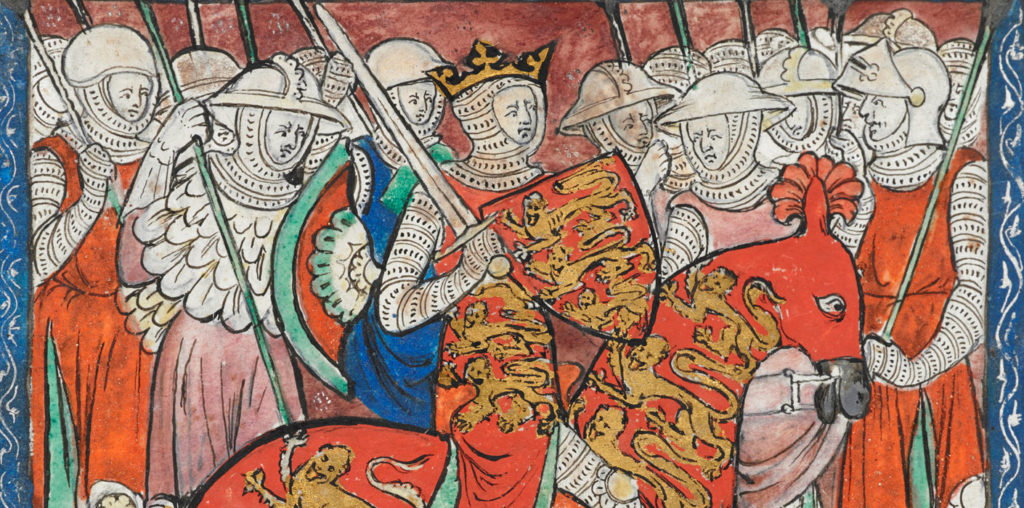
After William the conqueror won the battle of Hastings in the year 1066 after killing King Harold II, he was crowned as the new reigning king of England. With this event, the rule of the Anglo Saxons came to an end in England and the rule of the Normans started over England.
Thus, as the Normans started ruling, they implemented their own rules of ruling over England, which is popularly known as the Norman laws in England.
Let us today go through the different laws which were implemented by the Normans, which not only changed the way the Anglo Saxons ruled over England, but also impacted England with an overall change in both aspects, good and bad for the nation.
The different laws implemented by the Normans over England

Laws related to Religion
- The whole nation of England has to have the same faith in terms of religious beliefs. This meant that the whole nation of England has to believe in the same god and therefore worship will be done for only one God. This law was implemented to keep peace between the Normans and the English in terms of religious beliefs.
- All the freemen who were present had to take an oath that they all will be serving only one king, that is, William the Conqueror and will always protect him from all the enemies he has or will be having.
Punishment
- William the Conqueror promised that all the men who came along with him either in the year 1066 or after will be kept safe from everything. If any men of such category get killed, then the murderer of that man has to be found out within 5 days from the day of murder, if possible. This responsibility of finding out the murderer is that of the lord whom he served.
Thus, if however, the lord fails to find out the murderer, then the lord must pay for it a price of 46 marks of silver. If the lord however is not able to pay this amount of fine, then all the people under this lord on a total has to collectively pay the fine of 46 marks of silver.
- Now a guilty person was expected to pay a fine as compensation to the court and to the king instead of to the family.
- A concept of “Scot and Lot” was brought. This concept was a type of a fine which was to be paid. All the people who were under the English customs during the times of the Anglo Saxons and under the rule of King Edward the Confessor had to pay this fine.
- Outside the cities, no one was given the provision to sell cattle who were alive. However, there was a provision of selling the cattle in the cities. Whenever cattle used to be sold in cities, there must be the presence of three witnesses who will witness the sale of the cattle.
But, if this law was ignored and it was found out that the law has been ignored, then the person who did the sale will be liable to pay a fine of total amount equal to such that was fixed in the sale of the cattle.
- If any Englishmen was accused for murder, perjury or theft by a Frenchmen, that that particular Englishmen would either go through ordeal by a hot iron or go through ordeal by combat in order to defend himself.
If however, it was found that the particular Englishman is ill or unfit to take the la of defending himself, then he must find a substitute, that is, another Englishman in his place who would take up the law of defending in his honour.
On the other hand, if an Englishman accused a Frenchman of any kind of crime, then also the Englishman would either go through ordeal by hot iron or go through ordeal by combat in order to prove his case.
If by any chance the Englishman is not willing to do the same or refuses to do the same, then if the Frenchman who is accused takes an oath for his innocence and also swears on the same, then he will be acquitted.
Land ownership laws
- William the conqueror after his reign, introduced some of the laws for the land. On the other hand, there was already the existence of the laws of land that was placed by the previous king, that is, King Edward the confessor. But this law stated that when it came to the land laws, both the laws placed by William the conqueror and Edward the confessor will be kept alongside with each other.
- Any man who wanted himself to be declared as a freeman, then that man had to swear the oath of loyalty towards King William the conqueror. Not only this, the oath of loyalty should also be guaranteed by a specific number of people. Then, if the freeman broke any of the laws or went against the oath of loyalty he had taken, then the ones who guaranteed the oath of loyalty shall be liable to pay a fine as per fixed by the King.
All such disputes regarding this would be settled in the courts of law. However, here in the courts of law if any guarantor doesn’t attend or fails to attend the hearing of the court for the first time, he will be given a warning. If he fails the second time, one ox will be taken away from him. In the third time if the man again fails, then another ox will be taken away from him. Even after that if he fails even for the fourth time, then he shall be liable to pay a fine to the king.

This fine consisted of giving away goods to the king whose total value will be that of the original charge which was placed against the freeman who was accused of breaking the laws.
- There was no provision given to any man to sell another man. If any such case came to the light of the king, then the seller was liable to pay a fine to the king as per decided value by the king.
- No one will be sent to execution for the crimes they have committed. If found guilty of crime, then the particularly person will first be blinded followed by castrated. Also, this was a law which couldn’t be challenged.

